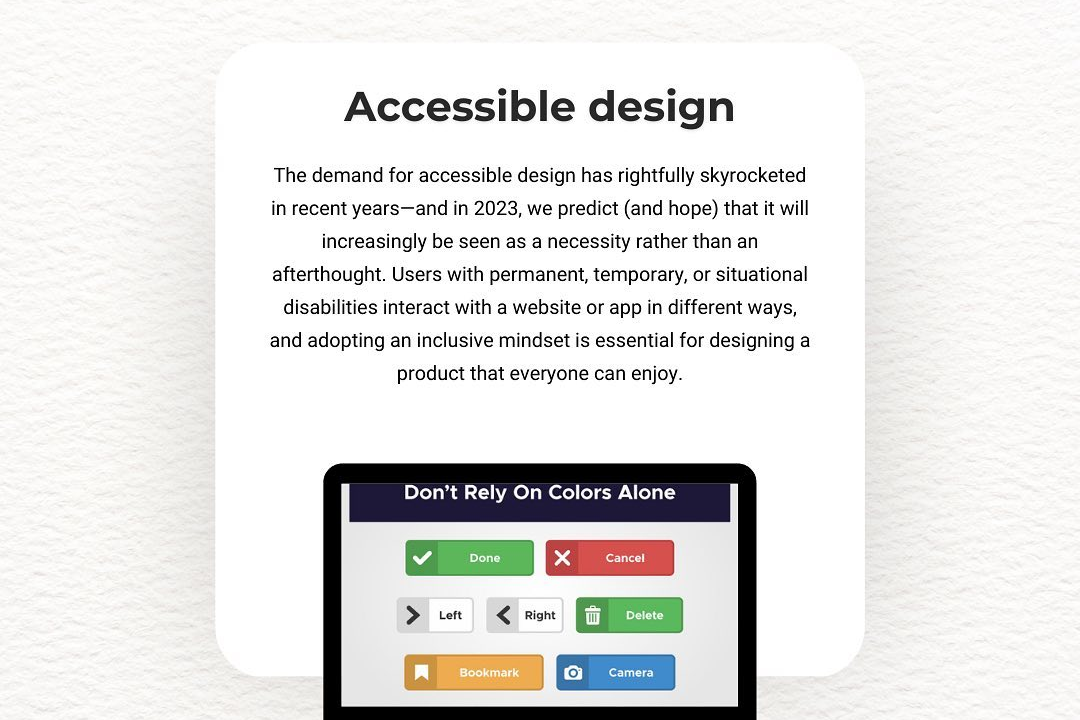Selenium Training In Pune Aundh
Selenium training in Aundh, Pune, is a specialized program designed to equip participants with the e
Selenium Training In Pune Aundh
Selenium training in Aundh, Pune, is an invaluable opportunity for aspiring software testers and quality assurance professionals to master one of the most in-demand automation testing tools in the industry. With the growing emphasis on delivering high-quality software applications, proficiency in Selenium enables individuals to streamline the testing process, enhance accuracy, and significantly reduce the time required for product delivery. The training program includes comprehensive coverage of Selenium's features, hands-on experience with real-time projects, and insights into best practices, making it an essential step for anyone looking to advance their career in software testing and contribute effectively to agile development teams.
To Download Our Brochure: https://www.justacademy.co/download-brochure-for-free
Message us for more information: +91 9987184296
Selenium training in Aundh, Pune, is an invaluable opportunity for aspiring software testers and quality assurance professionals to master one of the most in demand automation testing tools in the industry. With the growing emphasis on delivering high quality software applications, proficiency in Selenium enables individuals to streamline the testing process, enhance accuracy, and significantly reduce the time required for product delivery. The training program includes comprehensive coverage of Selenium's features, hands on experience with real time projects, and insights into best practices, making it an essential step for anyone looking to advance their career in software testing and contribute effectively to agile development teams.
Course Overview
The “Selenium Training in Pune Aundh” course is designed to equip participants with the essential skills and knowledge required for effective automation testing using Selenium. This comprehensive program covers fundamental concepts such as Selenium WebDriver, TestNG, and Maven, as well as advanced topics like framework design and continuous integration. Through hands-on projects and real-time scenarios, learners gain practical experience that prepares them for industry demands. By the end of the course, participants will be proficient in creating and executing automated test cases, troubleshooting issues, and implementing testing best practices, paving the way for a successful career in software quality assurance.
Course Description
The “Selenium Training in Pune Aundh” course is tailored for individuals seeking to enhance their skills in automation testing. This comprehensive program covers the key components of Selenium, including Selenium WebDriver, TestNG, and framework design, ensuring participants gain a solid understanding of test automation principles. The curriculum integrates real-time projects that provide hands-on experience, enabling learners to apply their knowledge effectively in practical scenarios. Participants will also delve into advanced topics such as continuous integration and best practices in automation testing, empowering them to excel in software quality assurance roles. By the end of this course, students will be well-prepared to tackle the challenges of the professional testing landscape with confidence and expertise.
Key Features
1 - Comprehensive Tool Coverage: Provides hands-on training with a range of industry-standard testing tools, including Selenium, JIRA, LoadRunner, and TestRail.
2) Practical Exercises: Features real-world exercises and case studies to apply tools in various testing scenarios.
3) Interactive Learning: Includes interactive sessions with industry experts for personalized feedback and guidance.
4) Detailed Tutorials: Offers extensive tutorials and documentation on tool functionalities and best practices.
5) Advanced Techniques: Covers both fundamental and advanced techniques for using testing tools effectively.
6) Data Visualization: Integrates tools for visualizing test metrics and results, enhancing data interpretation and decision-making.
7) Tool Integration: Teaches how to integrate testing tools into the software development lifecycle for streamlined workflows.
8) Project-Based Learning: Focuses on project-based learning to build practical skills and create a portfolio of completed tasks.
9) Career Support: Provides resources and support for applying learned skills to real-world job scenarios, including resume building and interview preparation.
10) Up-to-Date Content: Ensures that course materials reflect the latest industry standards and tool updates.
Benefits of taking our course
Functional Tools
1 - Selenium WebDriver: Selenium WebDriver is a powerful tool for automating web applications for testing purposes. It provides a programmable interface that supports various programming languages such as Java, C#, Python, and Ruby. The tool simulates a real user experience by interacting with web elements like buttons, forms, and navigation components. Students will learn to write and execute scripts that perform automated tests, enabling them to ensure that the web applications function correctly across different browsers.
2) TestNG: TestNG is a testing framework inspired by JUnit and NUnit, designed to simplify a wide range of testing needs. Students will learn how to structure their test cases, execute them efficiently, and generate reports. The framework supports annotations that allow for easier test configuration and execution flow management. TestNG also provides features like parallel test execution and data driven testing, which are essential for enhancing productivity in testing environments.
3) Maven: Apache Maven is a build automation tool used primarily for Java projects. In the Selenium training course, students will learn how to manage project dependencies, build processes, and setup configurations efficiently. Maven simplifies the management of Selenium projects, allowing students to quickly integrate necessary libraries and automate the build process. This enables them to focus more on writing test scripts rather than struggling with configuration issues.
4) Git and GitHub: Git is a version control system that helps in tracking changes in source code during software development. GitHub serves as a collaborative platform for storing code repositories. In the course, students will learn how to manage their automation projects using Git, allowing for version control and better collaboration with team members. This knowledge is essential for budding testers in a collaborative environment where multiple team members contribute to a project.
5) Jenkins: Jenkins is an open source automation server that helps in continuous integration and continuous delivery (CI/CD). The training will cover how to set up Jenkins to automate testing workflows, run test scripts, and generate reports. Students will learn to configure Jenkins jobs to run Selenium tests automatically whenever new code is committed, drawing a clear link between development and testing processes.
6) Cucumber: Cucumber is a behavioral testing tool that uses the Behavior Driven Development (BDD) methodology. It allows testers to write test cases in natural language, making it easier for non technical stakeholders to understand. In the training program, students will discover how to integrate Selenium tests within the Cucumber framework, enabling collaboration between developers, testers, and business analysts. This promotes a shared understanding of application features and functionalities.
7) Apache POI: Apache POI is a Java library used for reading and writing Microsoft Office files, including Excel spreadsheets. Students will learn how to utilize Apache POI to handle test data stored in Excel sheets, making their automation scripts more dynamic and versatile. By integrating this tool, they can read inputs and validate outputs efficiently, enhancing the robustness of their test automation.
These tools create a comprehensive ecosystem for software testing, ensuring that students are well prepared for real world automation testing challenges. By mastering these technologies, they will be equipped with the skills needed for successful careers in software quality assurance.
Here are additional critical points and tools related to Selenium automation testing that enhance the learning experience:
8) RestAssured: RestAssured is a powerful library for testing RESTful APIs in Java. In the course, students will learn how to interact with web services, send requests, and validate responses. This knowledge is crucial because modern web applications often depend on APIs to communicate, and understanding how to test these interfaces ensures comprehensive test coverage.
9) Page Object Model (POM): The Page Object Model is a design pattern that enhances test maintenance and reduces code duplication. Students will gain insights into how to implement POM in their Selenium projects, creating an abstraction layer for web pages. By organizing test scripts in this way, they will improve code readability and manageability, leading to more robust automated tests.
10) Locators in Selenium: Mastering locators is vital for effective web element interaction in Selenium. Students will delve deep into various locator types, including ID, Name, Class Name, XPath, CSS Selectors, Link Text, and Partial Link Text. Understanding how to choose the right locator strategy will enable students to create resilient scripts that can withstand changes in the UI.
11 - Data Driven Testing: The course will cover the concept of data driven testing, allowing students to execute the same test scenario with different sets of data. This technique is fundamental for effectively evaluating the application under various conditions. By learning to implement data driven tests using tools like TestNG or Apache POI, students can enhance test coverage and efficiency.
12) Exception Handling in Selenium: Effective exception handling is crucial in test automation to ensure stable test execution. Students will learn strategies for identifying and managing exceptions in their Selenium scripts. This knowledge will help them write more resilient tests that can gracefully manage unexpected issues, improving the reliability of test results.
13) Headless Browsers: Understanding the role of headless browsers like Chrome Headless and PhantomJS is essential for running tests in environments without a graphical user interface. The course will provide insights into when and how to use headless browsers, allowing students to run Selenium tests faster and more efficiently, especially in CI/CD pipelines.
14) Continuous Testing: Students will explore the concept of continuous testing as an integral part of DevOps. Understanding the role of automated testing within the CI/CD process helps ensure that software is always of high quality. The course will cover best practices for integrating Selenium tests into CI/CD pipelines, allowing for swift feedback and improved collaboration between development and testing teams.
15) Reporting and Logging: Comprehensive reporting and effective logging are critical for understanding test results. Students will learn various reporting frameworks like Allure or ExtentReports, which provide detailed insights into test execution, including passed, failed, and skipped tests. Implementing these frameworks helps teams address issues promptly and enhances overall project transparency.
16) BrowserStack: BrowserStack is a cloud based testing platform that allows testing across various browsers and devices. In addition to local test environments, students can learn to leverage BrowserStack to ensure their tests run in diverse configurations, thus improving the reliability and compatibility of web applications across different platforms.
17) Performance Testing Basics: While primarily focusing on functional automation, understanding the basics of performance testing can be beneficial. Students will touch on how Selenium integrates into performance testing frameworks, helping identify bottlenecks and improve application response times.
18) Collaboration with Development Teams: Encouraging collaborative practices within testing and development teams enhances product quality. The course will cover tools and practices that facilitate this collaboration, such as using Slack, JIRA, or Confluence for communication and documentation, bridging the gap between developers and testers.
By incorporating these additional points into the training program, students will be better prepared to handle real world challenges in automation testing, making them valuable assets in any software development team.
Browse our course links : https://www.justacademy.co/all-courses
To Join our FREE DEMO Session:
This information is sourced from JustAcademy
Contact Info:
Roshan Chaturvedi
Message us on Whatsapp: +91 9987184296
Email id: info@justacademy.co
Microsoft Power Bi Introduction Training












